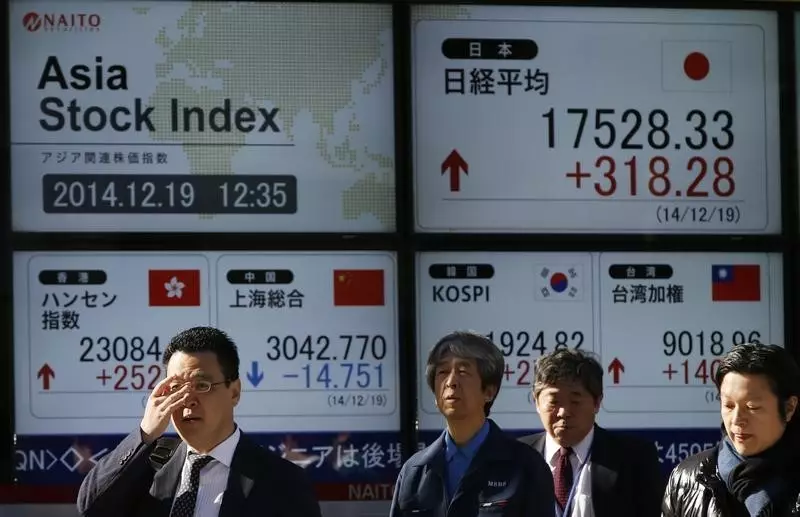As the year draws to a close, Asian markets are feeling the pressure from a lackluster performance on Wall Street, echoing a sentiment of unease and instability. Particularly on Thursday, stocks across the region showed a decline, highlighting the fragile mood among investors. The absence of significant market activity in many major markets, which were closed for New Year celebrations just a day prior, contributed to a quieter trading environment. This environment was exacerbated by U.S. stock index futures recording reductions during Asian trading hours, suggesting that the optimism typically associated with year-end market rallies, often referred to as the “Santa Rally,” has largely fizzled out.
A noteworthy factor contributing to the downward spiral in Asian markets is the disappointing performance of China’s manufacturing sector. Recent reports indicated that the growth in manufacturing during December was significantly below expectations, raising concerns over the effectiveness of the recent stimulus measures implemented by the Chinese government. The Shanghai Shenzhen CSI 300 index plummeted by 1.3%, while the Shanghai Composite index fared slightly better, yet still reported a decline of 0.9%. These numbers highlight a widespread concern that recent efforts to invigorate the economy may not yield the desired results amid waning industrial activity.
The private purchasing managers’ index (PMI) results indicated a lukewarm expansion of manufacturing, suggesting that the anticipated rebound might not materialize as quickly or robustly as hoped. Investors are now looking toward Beijing for further clarity on impending fiscal stimulus initiatives for the upcoming year, hoping for more robust support measures to fortify the economy amidst sluggish growth.
The responsiveness of Asian markets to corporate news was notably illustrated by the sharp decline of the Hang Seng index, which dropped by 1.7%. A significant portion of this decline can be attributed to Alibaba’s decision to divest its majority stake in Sun Art Retail, leading to a dramatic 30% fall in Sun Art’s stock price. Such corporate maneuvers not only reflect the intricate dynamics of the Asian financial landscape but also the overarching impact they can have on investor sentiment and market stability.
In Singapore, the Straits Times Index remained relatively stable amidst an economic backdrop characterized by mild expansion. The country’s GDP growth in the fourth quarter of 2024 was a mere 0.1%, which starkly contrasts with the preceding growth of 3.2%. This deceleration is primarily attributed to diminished export demand and a creeping slowdown in Chinese growth, which poses ongoing challenges for trade-oriented economies. Despite this quarterly slowdown, Singapore experienced an annual growth rate exceeding 4%, illustrating the complexities of its economic trajectory.
The landscape of Asian markets is further complicated by global political developments, particularly the anticipated trade tensions between the U.S. and China. With the incoming U.S. administration hinting at the imposition of additional tariffs, fears of an escalation into a broader trade conflict have emerged, overshadowing the markets with an aura of instability. This, coupled with the Federal Reserve’s recent meeting, indicated potential stagnation in monetary easing, reinforcing apprehensions about inflation’s impact on economic growth.
The performance of regional stocks varied significantly, with Malaysia’s FTSE KLCI index declining by 0.4% and the Philippines’ PSEi Composite following closely behind with a drop of 0.6%. In contrast, Australia’s S&P/ASX 200 saw a minor uptick of 0.4%. Meanwhile, India’s Nifty 50 futures suggested a negative open, reflecting ongoing uncertainty within the market.
South Korea presents a somewhat unique scenario with its stock market showing stability in the face of political disarray, following a crisis that led to the impeachment of President Yoon Suk Yeol amidst allegations of insurrection. This political turmoil, while troubling, appears to have only a mild impact on the KOSPI index, indicating the resilience of South Korea’s economic fundamentals.
Asian markets are navigating a challenging landscape defined by a combination of local manufacturing setbacks, corporate upheavals, and global political tensions. As investors await clarity on economic policies and trade relations, the prevailing uncertainty suggests that any potential market recovery may be a slow, arduous process.

